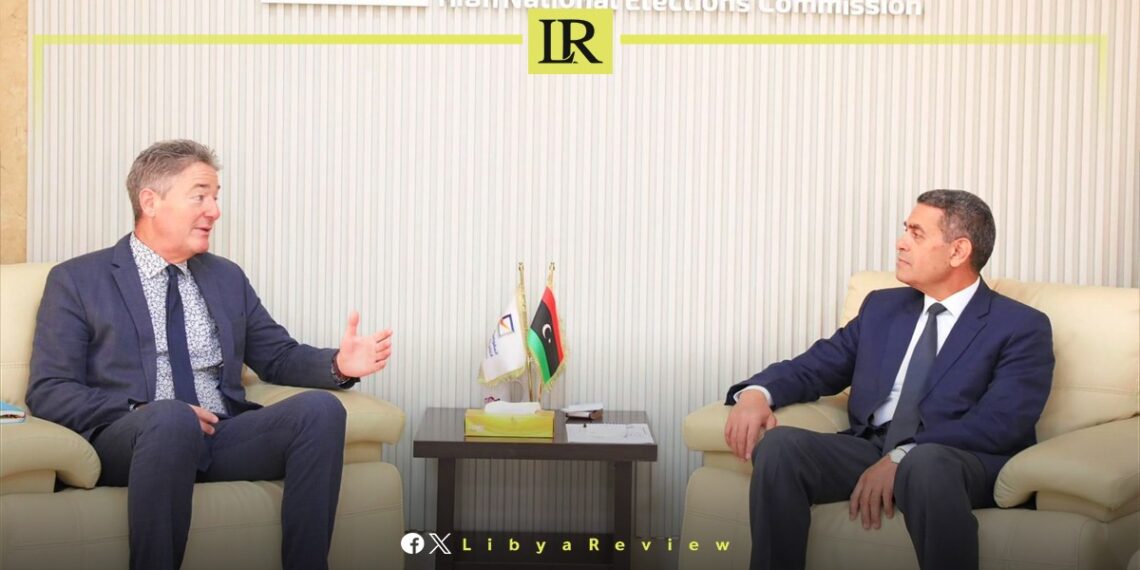The German Ambassador to Libya, Michael Ohnmacht, reiterated his country’s readiness to provide technical and advisory support to Libya’s High National Elections Commission (HNEC). This is aimed at enhancing the commission’s readiness to conduct the upcoming elections.
During his meeting with the Chairman of the HNEC, Emad Al-Sayah, on Wednesday, Ohnmacht expressed Germany’s appreciation for the commission’s efforts to hold elections according to the highest international standards.
According to a statement by the commission, the German ambassador’s visit is part of the international community’s support for the democratic process in Libya and to assess the readiness of the commission to conduct municipal council elections planned for 2024.
In December, Ohnmacht conveyed a message of hope and urgency for Libya to proceed with its long-awaited legislative and presidential elections in the coming year.
This sentiment was expressed in a recorded message shared by the German Embassy, in which Ambassador Ohnmacht underscored the significance of these elections for establishing lasting stability and peace in Libya.
Ambassador Ohnmacht’s statement, coinciding with the 72nd anniversary of Libya’s independence, highlighted a missed opportunity from two years prior when the country could have held these pivotal elections as originally scheduled for December 2021.
Last month, Al-Sayeh stated that the Government of National Unity (GNU) does not support holding municipal elections.
Al-Sayeh highlighted Prime Minister Abdelhamid Dbaiba’s disregard for funding demands for municipal elections. He noted a lack of cooperation from the Civil Status Authority and telecommunication companies.
The HNEC requested 80 million Dinars from the GNU to conduct elections in 97 municipalities but received no budget allocation, despite repeated appeals for funding.
Al-Sayeh affirmed the HNEC’s determination to propose a three-stage election process, contingent upon securing at least partial funding.
He outlined plans for the HNEC to lead election operations through three operational rooms in Benghazi, Tripoli, and Sabha, with the main room at the HNEC headquarters, independent of government control.
Al-Sayeh resolved issues regarding the closure of 11 HNEC offices by the government, stemming from communication breakdowns between the government and security agencies.


